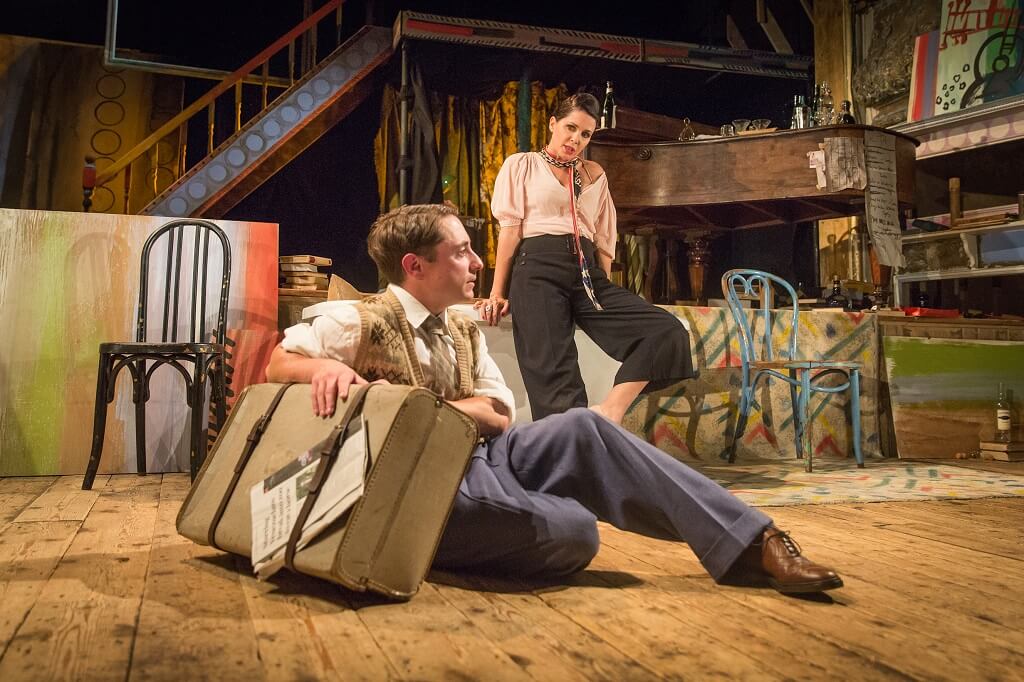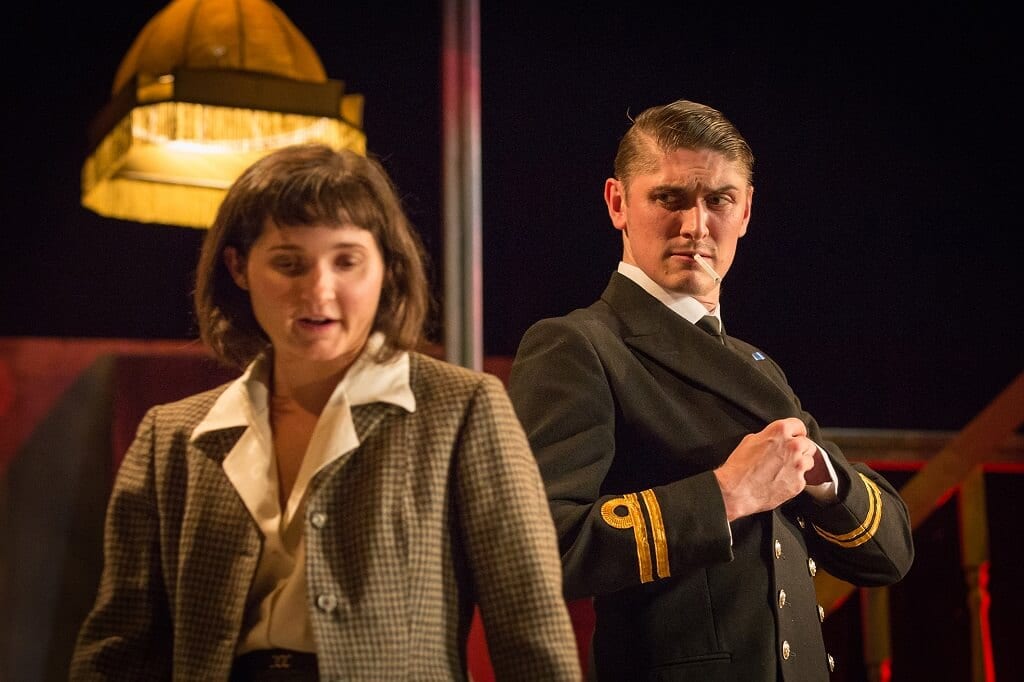In late 1940 Benjamin Britten crossed the Atlantic and moved in with his friend W.H.Auden, who was occupying a floor of a large Brooklyn brownstone. He became part of a bizarre Bohemian household that also accommodated Carson McCullers, and Gypsy Rose Lee, among others. Auden sought to set up a haven for artists where they could assert their pacifist credentials and practise their particular arts. Gradually the outer world broke in and the group did not long survive the entry of the USA into World War Two after Pearl Harbor. Britten and his partner Peter Pears returned across the Atlantic where he had to face a board for conscientious objectors before he embarked on the writing of his first operatic masterpiece, Peter Grimes.
Given the interplay of colourful characters and the rich mix of artistic and political themes embedded in this scenario, this play promised much. Initial expectations were raised by a lovingly detailed set, spread across three levels to indicate the height of the New York townhouse, the work of Cecilia Carey. It takes skill to bring off shabby-chic so well, especially in a building that is in a sense a temple to that style. However, despite some fine acting by a talented young cast these hopes were progressively lowered by the inferior quality of the dialogue, which was mostly pitched at a low level of gossip and discussion of personal peccadilloes, conveying little or nothing about why these people mattered as artists, writers and campaigners. Of course it is difficult to dramatise such themes so as to balance biographical and thematic concerns, but Zoe Lewis unfortunately undershoots the target here, leaving us little sense of why we should care about these people if self-dramatising childishness is all they have to recommend them. Particularly in Britten’s case there was no sense of his remarkable musicianly precocity alongside his well-documented tense, shy and often anxious personality. Neither Pears, nor Auden’s lover Chester Kallman made an appearance and thus the emotional balance was distorted too.
There were some redeeming features elsewhere. Ruby Bentall gave a feisty yet acutely vulnerable impersonation of the comic and doomed Carson McCullers, with a wonderfully husky Southern accent and a telling, wry delivery of the best lines of the evening. Sadie Frost too offered an accomplished interpretation of Gypsy Rose Lee, encompassing her knowing self-conscious allure, her sheer mischievous enjoyment of life and her entrepreneurial flair, all features we know she had in real life as well as in the timeless musical named after her.
The other actors remained hampered by the limitations of the music given to them, with both Auden and Britten remaining two-dimensional characters, full of party japes rather than the moral seriousness that mattered just as much if not more to the make-up of the originals. A final intervention by a partly mysterious agent-officer, John, (David Burnett) sat ill at ease with the rest of the play as if Pinter had collided with a young Rattigan. The best moments came when the original music and words were allowed for a moment to take centre stage: it was good to be reminded that Britten had provided a memorable setting of Auden’s Stop all the Clocks long before that poem reached international fame in a certain light comedy movie.
It is important to stress that these objections are not based on some narrow and petty historicism: of course a dramatization could and should take liberties with fact or fill gaps in the record. The problem here is simply that the results do not do justice to the lush, tortured complexity of the original men and women or to the artistic quality of their legacy.
Despite some deft acting and strong contributions from the creative team this was a very disappointing evening. Though one has to wonder whether a more subtle and probing script would have received a better response from a press night audience that was both restless and inattentive, and – the final indignity – inexcusably blighted by mobile phones.



